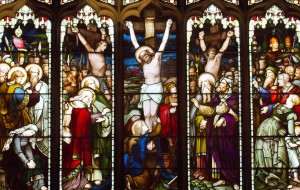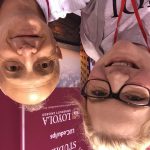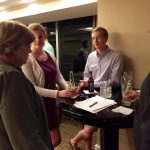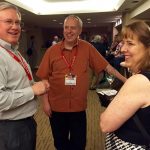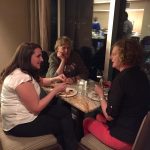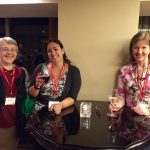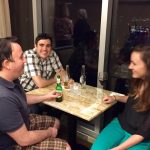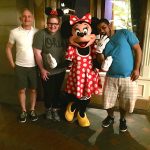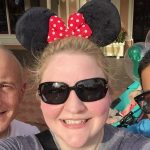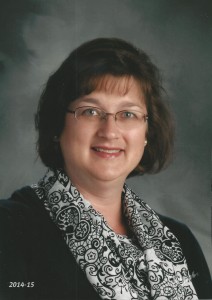Since we had such a positive response from her last guess post, which discussed active nonviolence, we would like to feature another essay by IPS student Charissa Qiu. She wrote a reflection on the Eucharist and the call to transformation. With the final week of Lent just beginning, let us reflect about why we made certain sacrifices during this season and what it means for us as we approach the celebration of Easter.
Holy Week: Death and Resurrection – The Call to Transformation
As we enter into Holy Week, we prepare to commemorate the death, burial and resurrection of Jesus. During this period of Lent, we may have found various ways to prepare ourselves, through various practices of prayer, penance, almsgiving, and self-denial. Each year, we hear of many people who abstain from sweets, or from watching television, and the question we would like to put out to everyone is – what is the purpose of, and the intention behind your abstinence? How does that tie into the commemoration of Jesus’ crucifixion and resurrection? What does this period of Lent and the celebration of Easter mean to us, as partakers in the Eucharist?
Jesus loved to speak in parables, as parables had the ability to draw the listeners in by their relatability, and then flip the story on its head with a conclusion that was unexpected, to help the listeners to overcome their ‘blindness” and “deafness” – the hardness of heart, and misunderstanding of what the meaning of the Kingdom of God. In the same way, as we partake in the Eucharist, we are called to a similar transformation – into a conversion of heart and mind that is in line with the character and passion of God. Our celebration of the Eucharist is meant to be celebrated alongside our baptism into the participation of the mission of Christ, a celebration of transformation – an ongoing process of death and resurrection.
Transformation is never comfortable. The human ego prefers stability and comfort, where there is certainty and familiarity. Transformation calls us to the opposite – it calls us to embrace discomfort, challenge and uncertainty. This is what we say “Amen” to when we receive Holy Communion, and this is what we are called to especially during this period of Lent. We come to the Eucharistic table hungry – hungry for a new world that knows compassion and works for justice. Hunger reminds us of our human dependency on each other. Let us use our physical hunger as a point of reflection – when we are hungry, we may go to a restaurant, or to the grocery store to fill that hunger. Without the chefs, the workers in the store, the truck drivers, and the farmers, we would not be able to fill that hunger. This is a simplistic and tangible example of our human dependency – having the financial means to purchase the food is not enough to fill that hunger – we need each other. That same hunger and mutual dependency needs to be channeled into a hunger for justice in the world, not just for ourselves, but for everyone. Just as Jesus is our sustenance, we need to be sustenance for each other.
The bread and the wine that we consume as nourishment goes through the process of being crushed, destroyed, and is then transformed, a symbol of the death and resurrection we are called to partake in our consumption. To be in right relationship and full communion with each other and God, we need to go through a process of transformation in how we perceive and treat each other. For true transformation to happen, there needs to first be a breaking down, before there can be a building up. We have grown up in a world that segregates and oppresses, and we have undoubtedly been influenced by the values and perceptions of the world. We are called to die, slowly and surely, to these attitudes and beliefs that create disharmony and violence in our world, and rise to interactions and engagement with each other that promotes peace and unity. In our world of individualism where we are taught that wealth and status are determinants of success, we need to die to our ego’s need to control, and to be recognized and praised, and rise to humility, the embracing of mystery and grace, where we work for the collective, and recognize there is no such thing as “private sin,” because we are all interconnected. For true transformation to happen, we need to practice letting go and letting God, just as Jesus said in Luke 23:46, “Father, into thy hands I commend my spirit.”
Join the conversation by following @BrianSchmisek on Twitter and @LoyolaIPS on Instagram! Also, network with the Loyola Chicago IPS community on LinkedIn.
